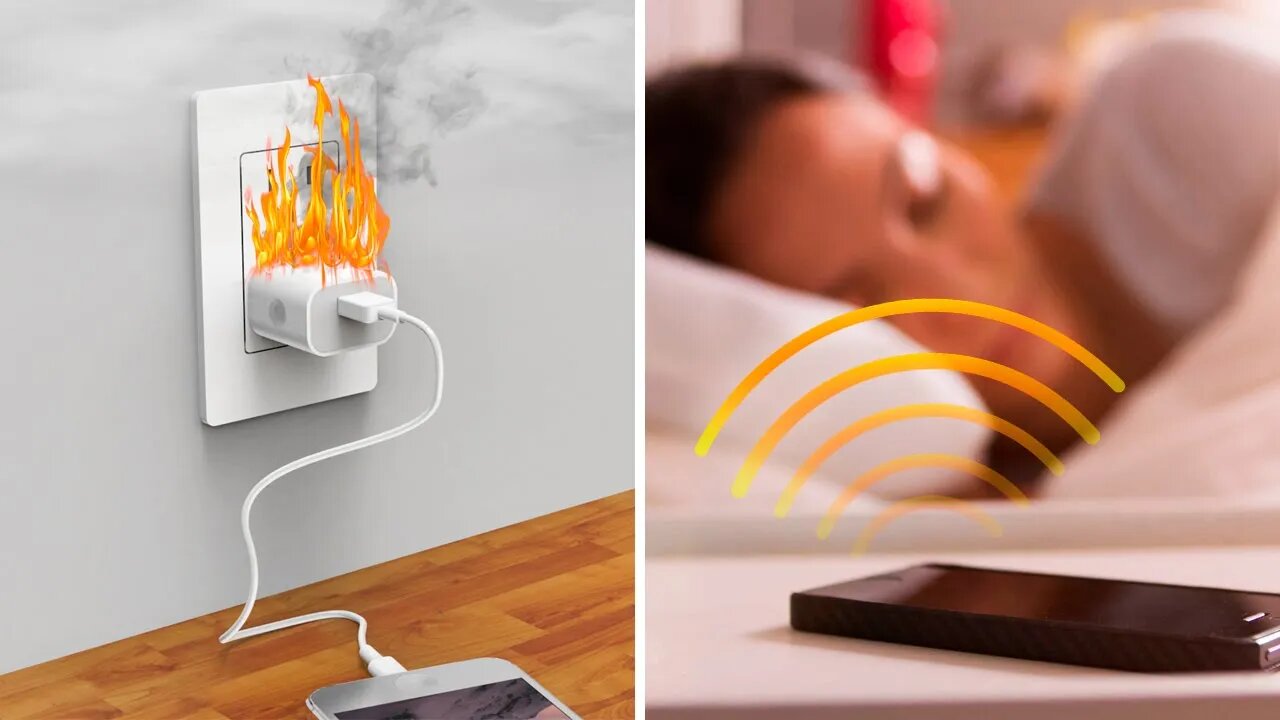Premium Only Content

4 Reasons Not to Sleep With Your Phone in the Bed
Do you sleep with your phone next to you? If you have this habit, watch this video!
It has become a habit, especially among younger people, to sleep with their phones close by.
Under the pillow seems to be the ideal place to put your phone since it is easier to reach it when it rings.
However, what many people don't know is that sleeping with your phone next to you on the bed can be dangerous for health.
It has already been proven that smartphones emit dangerous radiation that cause alterations in the system of certain self-regulating processes, such as our biological clock or heart rhythm.
Keeping the phone close to us while we sleep can cause an inability to sleep, make us wake up several times during the night, nightmares, etc.
Actually, it can even damage your brain. Did you know that?
Sleeping with your phone next to you can be harmful to your body functions and tends to limit the production of many hormones that are essential to your routine.
And, according to the World Health Organization, electronic devices, in general, are harmful to the body because they produce toxic effects that can increase the chances of developing cancer.
To validate this affirmation, an Australian study showed an important relation between using smartphones and male sterility and reduction of sperm quality.
See now 4 reasons for never sleeping with your phone ever again!
But where do I leave my phone when I go to sleep?
Watch the video to learn more!
Take care from now on!
0:00 Reasons Not to Sleep With Your Phone in the Bed
1:27 Fire Hazard
1:40 Bad Night's Sleep
2:07 A phone has more bacteria than a toilet
2:29 Exposure to Radiation
2:45 Where should you leave your phone
----------------------------------------
Facebook: https://bit.ly/38BWbw3
Pinterest: https://bit.ly/2Irvwa6
Disclaimer: The materials and the information contained on Natural Cures channel are provided for general and educational purposes only and do not constitute any legal, medical or other professional advice on any subject matter. These statements have not been evaluated by the FDA and are not intended to diagnose, treat or cure any disease. Always seek the advice of your physician or other qualified health provider prior to starting any new diet or treatment and with any questions you may have regarding a medical condition. If you have or suspect that you have a medical problem, promptly contact your health care provider.
-
 4:11
4:11
Natural Cures
1 year ago $0.99 earned7 Proven Foods to Unclog Arteries Naturally
3.57K -
 1:24:14
1:24:14
Game On!
14 hours ago $3.41 earnedTaylor Swift SHOCKS Chief fans! Does NOT want Travis Kelce to retire!
25.9K8 -
 4:27
4:27
Reforge Gaming
14 hours agoTHIS will not save Ubisoft.
42.4K4 -
 7:35
7:35
Tactical Advisor
1 day agoNEW Springfield Prodigy Compact (FIRST LOOK)
67.8K7 -
 16:45
16:45
IsaacButterfield
1 day ago $6.28 earnedWoke TikToks Are DESTROYING The World
37.1K33 -
 1:09:27
1:09:27
State of the Second Podcast
18 hours agoThis is Why We Don’t Trust Politicians (ft. @stones2ndsense)
31.2K4 -
 10:19
10:19
Chrissy Clark
15 hours agoCNN’s BILLION Dollar Defamation Trial
34.2K11 -
 1:00:27
1:00:27
Trumpet Daily
22 hours ago $6.26 earnedCongress Humiliates Itself - Trumpet Daily | Jan. 15, 2025
36.4K15 -
 1:49:46
1:49:46
Glenn Greenwald
1 day agoTrump Fosters A Peace Deal With Israel & Gaza; Trump's Pressure On Israel Embarrasses His Enemies & Provides Foreign Policy Clues; Rubio & Hegseth On War And Militarism | SYSTEM UPDATE #389
149K256 -
 1:28:46
1:28:46
Donald Trump Jr.
22 hours agoOut of this World: Breaking News Investigation on Secret Alien Aircrafts, Live with Ross Coulthart & Lue Elizondo | TRIGGERED Ep.207
353K505